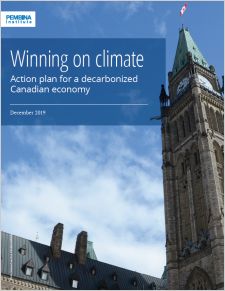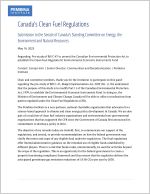
From marching in the streets to voting for parties with strong climate plans, Canadians have made it clear that they want Canada’s political leaders to act on climate. Despite divisive rhetoric during the 2019 federal election, a closer look at the federal parties platforms reveals more alignment on many of the high-level goals than one may have expected. With a minority government, this alignment is critical. Canadians expect the parties to work together to create and implement strong climate policies that will result in a vibrant, 21st-century decarbonized economy. In this report, we highlight some of the key policy outcomes necessary for a strong, decarbonized economy that Canadians need and expect collaboration on from their elected leaders.
Canada made huge strides forward with the creation of the first national climate plan in 2016, the Pan-Canadian Framework on Clean Growth and Climate Change. Canada will need to act quickly and decisively to build on this strong foundation if we are to meet our international climate commitments and prepare Canada to prosper in the 21st-century decarbonized economy. Priority areas for action include: targets and accountability, carbon pricing, electrification, oil and gas, buildings, transportation, decision-making on large energy and infrastructure projects, renewables in remote communities, and, especially important, a just transition for Canadian workers and municipalities as our energy sector diversifies away from fossil fuels.


